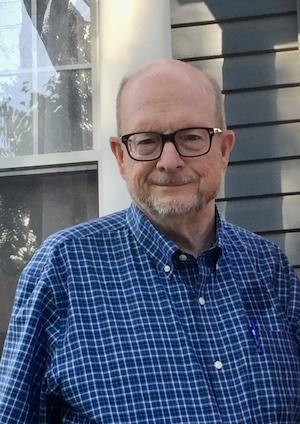ΦBK Association of New York 2022 Essay Contest Winner
By Allen Boyer
My longtime day job was senior appellate counsel at the New York Stock Exchange Division of Enforcement. We handled white-collar crime—all the ways in which a stockbroker can do harm to a client, all the ways in which a brokerage firm can let things slide. I’ve studied law and I’ve taught law, and the Exchange was the best place where I ever worked.
I like to research and write, and the Exchange needed people who could do that. I expected to go back to teaching in two years. I stayed for twenty-four.
There was no single moment when a love of learning drew me to a case. What you learned you found in your work, and you chose to learn by choosing to stay there. Classroom learning and learning from practice formed harmonics of the same chord. When you write a brief, you follow Hemingway: be short, be specific, be positive. You remember that what Auden said about poetry—that a poem is never completed, only abandoned—holds true for legal research. You learn from Stendhal how to boil down testimony: summarize what the witness said, then close by quoting the lines that bite. When you face the brief-writer’s hardest task, to prove what everybody already knows, you fall back on the historian’s precept: go back to the original sources.
What you learn from experience, handling the so-called real world, can be as arcane as anything taught in the academy. You learn how a collateralized mortgage obligation (a CMO) is a jelly roll of mortgages, and a collateralized debt obligation (a CDO) is a high-rise tower of CMO’s (rickety and with few exits). You learn that a million dollars will not actually fit into a briefcase but requires a full-size suitcase or small duffel bag.
It was a place to study, as a novelist might, human surfaces and emotional currents. Books broaden life and experience adds resonance to literature. You learn that embezzlement is the commonest financial crime, and that people who’ve stolen money can be the easiest class of perpetrators to deal with. Most aren’t liars or manipulators; they’re people who were short of money, had access to money, and took it.
That underlines what Faulkner said, that man isn’t evil, he just doesn’t have any sense. The rest of the story is what Dante got right: that you may understand them, you may even like them, but you cannot have sympathy for the damned. In years of reading account statements, tracing stolen money through debits and credits and trades and purchases, I only saw one person who bought books regularly. We took his testimony. He was polite and personable and intelligent. He’d stolen $200,000. We barred him for life.
One case began with a retired engineer. His only son became a stockbroker, which he never was happy about. Thirty years passed, and he still wasn’t happy. Then something tripped an alarm, and the firm asked the old man if he’d transferred money into his son’s account. He hadn’t, the old man said. But he wouldn’t testify about that. The case was in a sunbaked part of California, and I thought of The Big Sleep. The tensions were something Raymond Chandler would have understood. Later I read A Thousand Acres, and what I’d learned in California made that story all the bleaker, a study in crimes and family secrets and how courts fail to handle them.
We live, each of us, in a nutshell. Each nutshell, if we understand aright, contains infinite space. The poet who said that had learned everything that his school could teach and kept learning from the city and the playhouse.
The Exchange made a capacious nutshell. The work had the grind of scholarship and the rewards, too. I remember one gray winter morning, when subprime mortgages were in everything we were doing. The Great Recession was upon us. Wall Street couldn’t find bottom, and we couldn’t find a vantage point, a high point where we could see the landscape of that financial pandemic and map our campaign across it.
That was the same gray morning that I opened a web page. Buried in plain sight there, no scrolling required, were the clear dry numbers on the mortgage deals that had failed, and how badly, and how many brokerage firms had known. An epiphany? Yes—and the high ground we needed, and a shaft of sunlight breaking down Wall Street. A bright instant of wild surmise.
Allen Boyer (ΦBK, Vanderbilt University), a native of Oxford, Mississippi, lives and writes on Staten Island. Vanderbilt University is home to the Alpha of Tennessee Chapter of Phi Beta Kappa.




